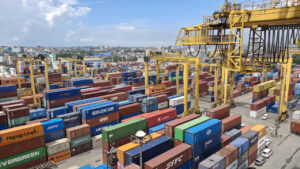According to the most recent Sea-Intelligence data, shipping operators’ ability to control capacity appears to be a concern for the future.
When looking at the four-week average capacity deployment for Asia-North America, Sea-Intelligence found that capacity is on track to grow more than 20 per cent, as peak season is steadily approaching.
READ: Asia-Europe carriers outpace Transpacific in capacity planning
A similar tendency can be seen in Asia-Europe, where capacity growth is now expected to exceed 40 per cent.
According to Sea-Intelligence, the industry has been in this situation previously since the cyclical nature of shipping makes it inescapable that capacity injection would frequently surpass demand growth.
READ: Decline in US-Asia imports challenges global container recovery
However, it is not a natural rule that this will inevitably cause the market to crash, as Alan Murphy, CEO, Sea-Intelligence, explained: “The carriers have the ability to manage capacity, even in the face of a large supply/demand discrepancy.
“The developments in spring 2020 clearly showed this. The ball is right now very much in the carriers’ court.
“Their current planning will certainly result in a sharply worsening market balance, and likely continuing declines in freight rates – something which could lead to loss-making territory in the second half of 2023.
“But this can be avoided by tactical use of blank sailings.”









